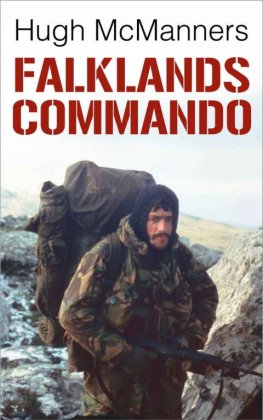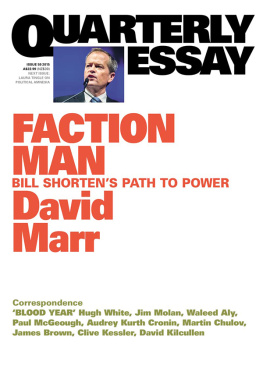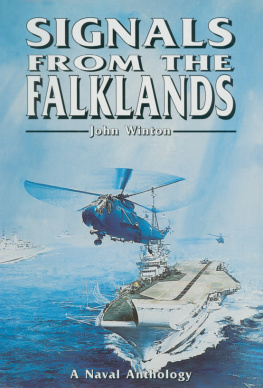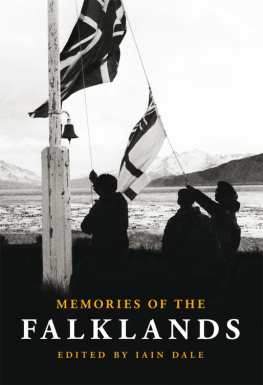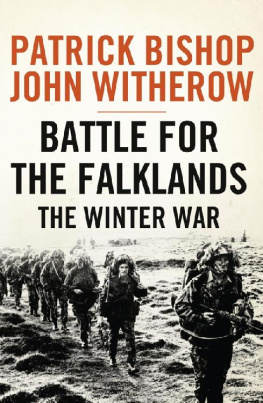This edition is published by PICKLE PARTNERS PUBLISHINGwww.picklepartnerspublishing.com
To join our mailing list for new titles or for issues with our books picklepublishing@gmail.com
Or on Facebook
Text originally published in 1988 under the same title.
Pickle Partners Publishing 2014, all rights reserved. No part of this publication may be reproduced, stored in a retrieval system or transmitted by any means, electrical, mechanical or otherwise without the written permission of the copyright holder.
Publishers Note
Although in most cases we have retained the Authors original spelling and grammar to authentically reproduce the work of the Author and the original intent of such material, some additional notes and clarifications have been added for the modern readers benefit.
We have also made every effort to include all maps and illustrations of the original edition the limitations of formatting do not allow of including larger maps, we will upload as many of these maps as possible.
War in the Falklands; Perspectives on British Strategy and Use of Air Power
by
John E. Marr, Lieutenant Colonel, USAF
TABLE OF CONTENTS
Contents
TABLE OF CONTENTS
REQUEST FROM THE PUBLISHER
ABSTRACT
Examines the political atmosphere and events leading to the Falklands war and concludes that the war was caused by critical misperceptions on both sides. Analyzes British response with emphasis on force selection, strategy, Jointness, and the role of airpower. Suggests that British victory hinged on a well-coordinated, joint warfighting effort, and highlights the key role played by airpower. Concludes with a caution concerning the potential for worldwide perceptions of reduced US power projection capabilities in light of budget-induced force reductions. Warns that these perceptions could lead, as they did in the Falklands, to military conflict.
BIOGRAPHICAL SKETCH
Lieutenant Colonel John E. Marr (B.A., St. Michael's College; M.A., University of Northern Colorado), is a command pilot with extensive experience in operations, including duty as an F-111 squadron commander. He has accumulated over 4,300 hours of flying while assigned in the CONUS and in Europe. He held staff positions as a briefing officer at HQ United States Air Forces Europe and as an operational planner at both HQ Tactical Air Command and HQ United States Central Command. Colonel Marr is a 1988 graduate of the Air War College.
CHAPTER 1 INTRODUCTION
A case can be made that the United States caused the Falklands War not by its actions in 1982, but rather in 1831! (20:5) In that year the Falklands were under the jurisdiction of Argentina, and had been since 1820, Argentina having laid claim to the Islands in that year. An Argentianian governor had been overseeing the islands, albeit with limited effect, since 1823. But in 1831, the Governor arrested the crew of a US ship for hunting seals on a scale that exceeded the limits he had imposed to protect the declining seal population. The American's property was confiscated and held on the islands, and the crew taken to Buenos Aires for trial. However, the American consul in Buenos Aires, at the prompting of the British consul, dispatched the USS Lexington, a warship that was coincidentally docked in Buenos Aires, to the islands to secure the confiscated American property. (20:5) Unfortunately for Argentina, the captain of the Lexington not only recovered the confiscated sealskins, but also spiked the Argentine guns, blew up their powder, sacked the settlement buildings, and arrested most of the inhabitants. He then declared the island 'free of all government' and sailed away. (20:5)
Argentina attempted to restore order to the islands but was not successful. Taking advantage of the existing turmoil, Britain dispatched two warships to the islands in January 1833. The British easily subdued the limited Argentine force and declared the islands to be under the rule of Britain. Despite Argentine protests regarding the legality of this claim, Britain maintained control over the islands until April 2, 1982. On that day, Argentine troops invaded the islands and, after a brief but fiercely contested resistance by dramatically outnumbered British marines, the blue and white flag of Argentina was again raised over the islands. Surely the Argentines could not then have imagined that in just 74 days they would be expelled from the islands, much as they had been in 1833.
The term desolation is somehow inadequate in describing the Falkland Islands. An entry in the log of a Spanish ship in 1540 described what is believed to have been the Falklands: All this country is bare without a bit of wood, very windy, and very cold, because eight months in the year it snows and the prevailing winds are southwest.(20:1) In the absence of any other resources, early interest in the islands appear to have revolved around whaling and sealing. Although first visited by Englishman John Strong in 1690, the first settlement was established by the French in 1764. Two years later the English built a colony, unaware of the existence of the French colony. The French later sold their settlement to Spain and administrative responsibilities were handed over to Spanish authorities in Buenos Aires. In 1770, ships of the Spanish fleet sailed to the islands and ousted the British. A subsequent agreement allowed the British to restore their settlement as a face-saving gesture. But, in an alleged unwritten agreement, the British agreed to voluntarily withdraw at a later time. (35:13) The British finally departed the islands in 1774 but not without leaving behind a marker which claimed British sovereignty over the islands. The Spanish abandoned the islands themselves in 1806 because of the wars of independence in Latin America. They did not, however, foresake their claim to sovereignty. After Argentine independence was acknowledged by Spain in 1823, Buenos Aires assumed Spains claim to the islands and appointed a governor. This situation prevailed until the encounter with the Americans in 1831.
This historical background is necessary to understand the dispute between Britain and Argentina over the question of sovereignty, which has festered since 1833. The remainder of this report will focus on the 1982 conflict. Chapter II examines the political atmosphere and events leading up to the Argentine invasion. Chapter III analyzes the British military response in terms of force selection and British assessment of the capabilities of both its own force and that of Argentina. Chapter IV assesses the British strategy. Particular attention is placed on the jointness of the British military effort and the contributing role played by airpower. Chapter V draws on the British experience and suggests the implications for the power projection capabilities of the United States. Appendices include a chronology of significant events in the war, British and Argentine Air Orders of Battle (AOB), and British and Argentine aircraft losses.
In the end I wish to show that the cause of the war was political misperceptions; that the British victory hinged on a well-coordinated, joint warfighting effort; and that air power played a key role in the outcome.
CHAPTER II WAR AS AN EXTENSION OF POLITICS
The Falklands conflict illustrates as well as any in the past few decades that war is, as Clausewitz says, a continuation of political intercourse, carried on with other means. (7:87) To understand the Falklands war you must have an appreciation of the climate which lead to the shift from diplomatic to violent means in resolving this political conflict. To gain this appreciation, the policies of both nations have to be examined in their domestic and international contexts. In the end, it will be clear that the war was not Inevitable, but was caused largely by mutual misconceptions and miscalculations regarding each other's intentions and capabilities. (37:52; 22:100; 24:9)



